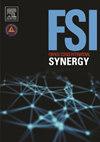Forensic DNA elimination databases in Europe: A comparative analysis of data from seven countries
Q1 Social Sciences
引用次数: 0
Abstract
Forensic DNA elimination databases are valuable tools for identifying potential contamination risks during forensic investigations. This study provides a comparative analysis of the design, implementation, and effectiveness of forensic DNA elimination databases across seven European countries: Sweden, Germany, Czechia, Poland, the Netherlands, the UK, and Finland. Data were collected through structured inquiries sent to ENFSI member states’ forensic DNA laboratories, focusing on key aspects such as legal frameworks, database sizes, and contamination cases identified through the elimination database. The results reveal significant differences in the establishment and management of these databases, reflecting diverse legal and operational contexts. The findings underscore the need to ensure that all European countries implement their elimination databases to standardize forensic procedures and improve the reliability of DNA evidence. Furthermore, the study highlights the importance of introducing harmonized frameworks for forensic DNA elimination databases to enhance transparency, accessibility, and efficiency in forensic DNA practices across Europe.
欧洲法医DNA消除数据库:来自七个国家数据的比较分析
法医DNA消除数据库是法医调查过程中识别潜在污染风险的宝贵工具。本研究对瑞典、德国、捷克、波兰、荷兰、英国和芬兰等七个欧洲国家的法医DNA消除数据库的设计、实施和有效性进行了比较分析。通过发送给ENFSI成员国法医DNA实验室的结构化查询收集数据,重点关注法律框架、数据库规模和通过消除数据库确定的污染案例等关键方面。结果显示,这些数据库的建立和管理存在显著差异,反映了不同的法律和业务背景。研究结果强调,有必要确保所有欧洲国家实施其消除数据库,以使法医程序标准化,并提高DNA证据的可靠性。此外,该研究强调了引入法医DNA消除数据库统一框架的重要性,以提高整个欧洲法医DNA实践的透明度、可及性和效率。
本文章由计算机程序翻译,如有差异,请以英文原文为准。
求助全文
约1分钟内获得全文
求助全文
来源期刊

Forensic Science International: Synergy
Social Sciences-Law
CiteScore
4.90
自引率
0.00%
发文量
75
审稿时长
90 days
 求助内容:
求助内容: 应助结果提醒方式:
应助结果提醒方式:


